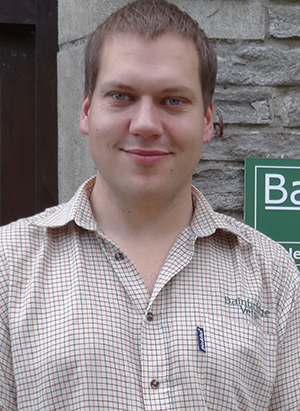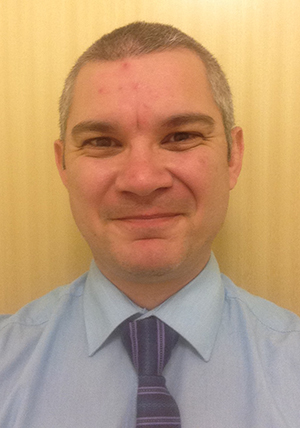-
-
- Council Members
- Role of Council Members
- Council meetings
- Council elections
- Previous election results
- Dr Louise Allum
- Dr Sam Bescoby
- Dr Andrew Clemence
- Dr Tshidi Gardiner
- Dr Reginald Godwin
- Paddy Gordon
- Dr Danielle Greenberg
- Dr Gerard Henry
- Dr Richard Hillman
- Dr Benjamin Kennedy
- Dr Tom Lonsdale
- Dr Darren Partridge
- Martin Peaty
- Alison Price
- Dr Peter Robinson
- Dr Jennifer Simmons
- Dr Sadie Spencer
- Dr Mary Thomas
- William Wilkinson
- Dr Lara Wilson
- Past-Presidents
-
-
-
-
-
- About extra-mural studies (EMS)
- EMS requirements
- Information for vet students
- Information for EMS providers
- Information for vet schools
- Temporary EMS requirements
- Practice by students - regulations
- Health and safety on EMS placements
- EMS contacts and further guidance
- Extra-mural studies fit for the future
-
-
- Code of Professional Conduct for Veterinary Surgeons
- Code of Professional Conduct for Veterinary Nurses
- Contact the Advice Team
- XL Bully dog ban
- 'Under care' - guidance
- Advice on Schedule 3
- Controlled Drugs Guidance – A to Z
- Dealing with Difficult Situations webinar recordings
- FAQs – Common medicines pitfalls
- FAQs – Routine veterinary practice and clinical veterinary research
- FAQs – Advertising of practice names
- GDPR – RCVS information and Q&As
Why I applied to become an Advanced Practitioner
With well over 500 veterinary surgeons successfully applying to become Advanced Practitioners the new status has exceeded our expectations in terms of its popularity and take-up. No doubt the motivations behind applying for the status are as diverse as the designations and here we talk to two successful applicants about why they applied and how they hope the designation will change their professional life.
Two vets talk about their motivation and ambitions
Michael Woodhouse, Bainbridge Vets, North Yorkshire

“When I heard the RCVS was bringing in the concept of Advanced Practitioners status I was interested. There had always been a big step from ‘just a vet’ to Specialist with nothing in between for certificate holders and those with further qualifications.
"I found it heartening that the RCVS is now recognising those who have spent the time (and the money) studying for further qualifications – the so-called ‘middle tier’ towards specialisation.
“I wanted to apply for the Advanced Practitioner status because I think it clarifies to our clients what the further qualifications and letters after our name actually mean to them!
"Whilst a certificate is recognisable to professional colleagues in its own right, the new status gives extra credibility that the individual is keeping up to date with CPD in their designated area.
“I am now an RCVS Advanced Practitioner in Cattle Health and Production, which fits well with my clinical work as this is mainly with dairy cows.
"All areas of veterinary practice have become more competitive, along with clients’ rising expectations and greater knowledge and access to information. I hope that holding the status communicates to my clients that I am serious about what I do, and that I am practising at a more advanced level.
“The RCVS has received some criticism with the requirement to demonstrate some of the soft skills for people applying for and maintaining the status.
"Having done the A module for my Certificate in Advanced Veterinary Practice, however, I believe that these areas are vitally important. I like the fact that the status can be taken away if an Advanced Practitioner is not practising with competence in these skills as well as the added necessity to do more than the minimum requirement for CPD.”
Colin Whiting, Director at A30 Referrals, Penmellyn Vet Group, Cornwall

“In truth, at first I thought ‘what is this hoop I've got to jump through now’! I wasn't best disposed to RCVS initiatives after there appeared a strong push to remove the certificate postnominals and my initial reaction was cautious to say the least. I am generally averse to paperwork and forms, and I had a degree of suspicion of the motives behind the initiative, as I was previously quite happy with the certificate as my 'badge'. The component regarding the A module in particular left me cold.
“However, there are aspects of the status that I like – the increased requirement for CPD, designated to your area of expertise, has been invigorating.
"I was up to the required additional levels with CPD already, but it led me to attend a five-day North American Veterinary Community (NAVC) congress and take on and research a local lecturing commitment. I now have another four days booked in the next couple of months on various courses, one non-clinical.
“In practice, it has led to further mentoring of colleagues, too, something I really enjoy. Altogether, I've felt a re-engagement with CPD as an engaging stimulus rather than a duty; after NAVC I used a little different something I'd learned on each of the first four days back at work. Clinical progression often seems to be many little steps and refinements rather than one big new radical procedure.
“I gained the RCVS Certificate in Small Animal Surgery in 2003 and my clinical caseload consists solely of orthopaedic, spinal and soft-tissue surgical cases which are externally or internally referred.
"I was happy enough with the certificate designation, so I suppose the motivation to become an Advanced Practitioner was more stick than carrot – I wanted to continue to reassure referring vets of my level of competence. I did like the components of the Advanced Practitioner application that asked for case-load and work-balance proportions.
I've felt a re-engagement with CPD as an engaging stimulus rather than a duty; after NAVC I used a little different something I'd learned on each of the first four days back at work.
“I chose small animal surgery as it best reflects my work. Originally, I chose surgery because I really enjoyed it. I like the practicality of fixing things and ‘sterile carpentry’ appeals; I'm too impatient to be content fixing things with a six-week course of tablets or a long-term diet change.
"I work best at something I am interested in and engaged with – there are a number of pathology and biochemistry lecturers at Liverpool who may still be able to testify to that, through gritted teeth. Things were a little dicey until I reached the clinical years!
“Having engaged a little with the process now, I hope to have a renewed engagement with CPD and clinical progression; I hope that the status is going to be a meaningful and well-recognised level, particularly indicating the proportion of time spent by the individual within a specific area. Ultimately, I feel volume of case experience, as well as level of qualification, are important indicators of proficiency and I hope the status combines those two aspects for the future.”
First published in RCVS News
March 2015